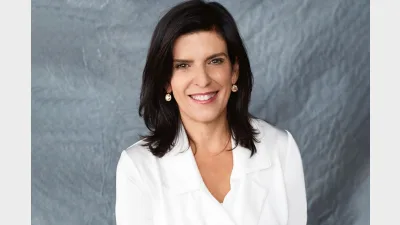Gender gap costs super system $146m



If the gender gap in superannuation were to close it could inject nearly $146 million into the country's super system, according to Colonial First State Global Asset Management (CFSGAM).
CFSGAM's 'Power of Closing the Gap' report found this could be the case if the super and participation gap were eliminated, where the participation rate and median super balance of females were the same as that of males.
"Given that these calculations are based on the median not the average (which is significantly higher) it is not unreasonable to assume that the actual impact could potentially be even larger," the report said.
One of the report authors, CFSGAM senior analyst, economics and market research, Belinda Allen, said there was still an unexplainable gap in wages that only increases as women approach retirement age.
Allen said this was the case even when differences in the level of participation in the workforce, time taken out of the workforce for caring responsibilities, and different labour characteristics of male and female workers were taken into account.
CFSGAM analyst, economics and market research, Carlos Cacho, said: "Currently the median super balance of an Australian woman is 35 per cent less than that of a male".
"If super balances were equal, based on the current number of women in the workforce, there would be an aggregate dollar increase of $94 billion," Cacho said.
Allen noted that changes in social attitudes towards women in the workforce and government policy had a key role to play in improving income equality for women.
"However, empowering women to take control of their financial wellbeing and providing them with confidence when making investment decisions could be a more immediate solution to improving the wealth of Australian women approaching retirement," Allen said.
The report pointed to a McKinsey Global Institute study that found that if women participated in the labour market in an identical way to males an estimated US$28 trillion ($36.7 trillion) could be added to the global economy by 2025, an increase of 26 per cent.
Recommended for you
Peri and menopause training founder and TV journalist Shelly Horton has hit back at calls for businesses to introduce menopause leave.
Former federal MP Julia Banks insists that all women can use their personal power to advocate a more inclusive workplace and support other women.
After a successful inaugural event last year, the Women in Finance Summit is returning in 2024 with more business insights and networking opportunities.
Super Review is now accepting nominations and submissions for the Women in Finance Awards, to be held in November 2024.










This kind of analysis is nonsense and the headline that goes with it is ridiculous! The gender discrepancy in super holding is not a “cost” to anybody – except perhaps the spruikers and gougers who want to increase their funds under management so they can extract even more by their fees and commissions.
The gender gap concept itself is deeply flawed. No distinction is being made between the name on the account and the potential beneficiaries. There are many more women who have vested interest in super accounts held by men than the reverse, and the amounts involved are even more divergent than the numbers. So what if the money is in his name if she is an equal beneficiary both legally and in practice? Yes, there are large gender wage differences on average, and yes it is hard to explain them all by the usual labour market factors. And yes, the super accounts of women tend to reflect their average lower lifetime workforce participation and wage rates. But it is pointless to compare the average account size by gender of the account holder.
Where there may be a gender problem with super is the specific case of a family law split in which she gets half (or maybe more) of the tangible assets to that point, but he gets to keep his human capital which enables him to have higher wages and savings from then onward. After the split, his ability to contribute to super until retirement may be much better than hers. That seems a public policy issue worth considering, although it would be devilish problem to solve.